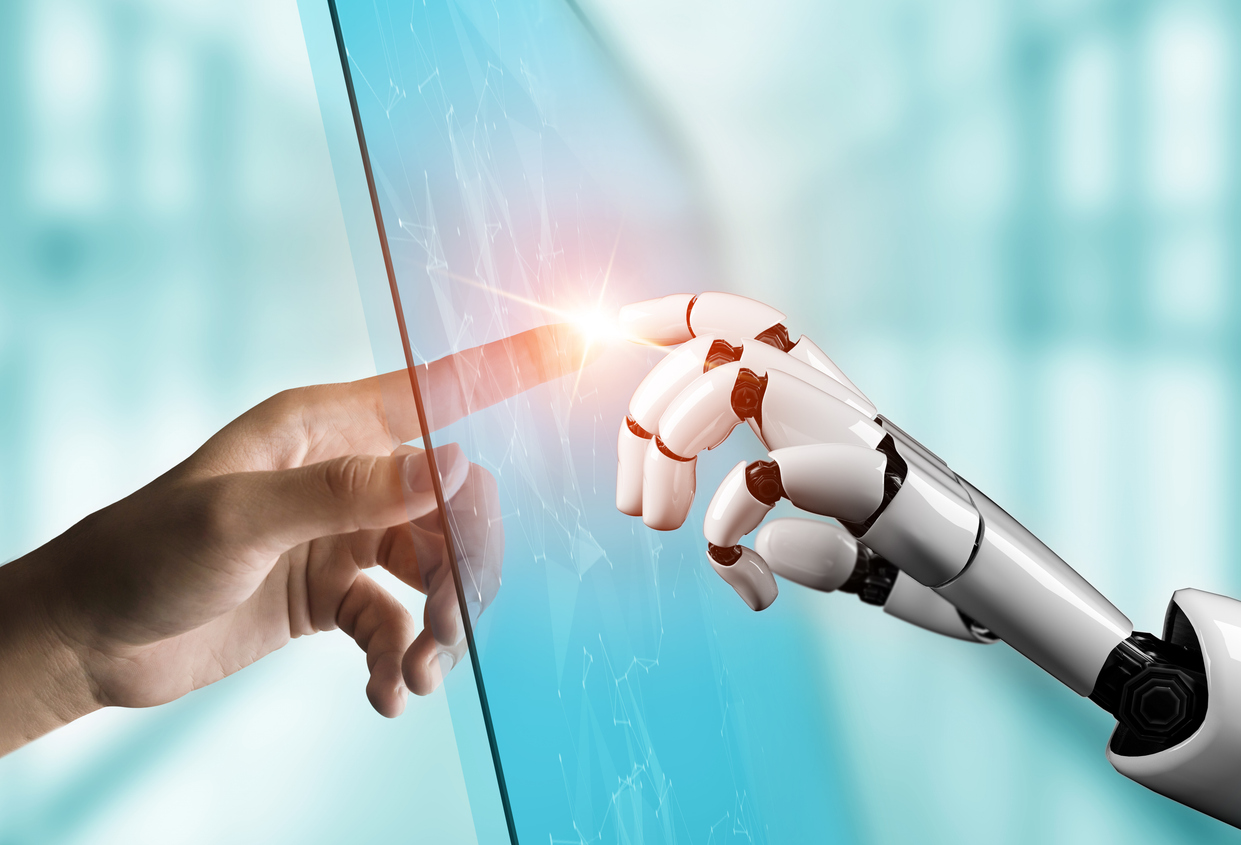The Future of AI in the Glass Industry
Staying ahead in technology adoption is crucial for optimizing the performance of AI-driven solutions

Artificial intelligence is a field of computer science that develops intelligent machines capable of tasks requiring human-like intelligence. It includes capabilities like learning, perception, problem-solving and reasoning.
Unlike rules-based systems, AI systems analyze complex data to make decisions and learn from experiences, continually improving performance. AI introduces efficiencies and capabilities and can potentially change business operations and customer interactions.
AI is already finding applications to enhance human capabilities, automate tasks and extract insights from vast data, thus reshaping our technological frontiers.
Embracing and preparing for rapid development
The future of AI is defined by rapid evolution, rendering medium-term predictions less significant than businesses’ need to stay agile and remain open to ongoing change. At Cyncly, our approach to developing and deploying AI is founded on three core principles that guide our activities, ensuring that the solutions we offer meet industry standards and align with our organizational values and customer needs.
01. Data-informed development
Our AI development is deeply rooted in leveraging comprehensive industry data. This approach ensures that our AI solutions are technologically advanced and tailored to the specific demands and nuances of the markets we serve.
02. Ethical application
We are committed to the ethical and responsible utilization of AI. This means prioritizing our AI solutions’ safety, security and integrity, and ensuring they are used to benefit our users without compromising ethical standards.
03. Practical solutions
We focus on creating AI applications that provide practical and tangible benefits to our customers. We design our AI tools to directly address the challenges and opportunities within our industries, enhancing the efficiency and effectiveness of our customers’ operations.
Staying current with the latest technology is crucial for optimizing the performance of AI-driven solutions. This includes regularly updating software to ensure compatibility with new AI features and embracing digital business processes with project data stored consistently.
Strategic technology planning
We advise our customers to engage in strategic technology planning. This involves not just reactive updates but proactively anticipating and preparing for technological trends. By staying ahead in technology adoption, businesses can ensure they are always ready to leverage the latest AI innovations to their advantage.
In Cyncly’s Kitchen, Bathroom and Furniture retail solutions group, AI is transforming design processes by swiftly creating initial designs from user inputs, speeding up project stages, facilitating design iteration, and enhancing customization. Moreover, AI renders more precise and realistic visualizations, enabling Cyncly customers to offer personalized, quality services while protecting their margins, and improving client understanding and satisfaction as well as operational efficiency. Cyncly’s AI tools meet diverse consumer needs, driving innovation and quality in design.
Vision for AI in the glass industry
Cyncly’s commitment to integrating AI in the glass industry is spearheaded by the recent establishment of the AI Innovation Center, a hub for developing AI functionalities across our product portfolio in concert with our industry experts and product development teams, focusing on enhancing efficiency and decision-making. Two potential near-term AI applications are:
1. Auto-replacing purchase orders for stock replenishment. In this potential use case, AI takes over the critical task of stock management. By automating purchase orders, the system ensures that stock levels are maintained efficiently, without the need for manual intervention.
This AI functionality is designed to analyze stock levels, predict future requirements based on usage patterns, and automatically place orders to replenish stock. This streamlines inventory management and reduces the risk of human error, ensuring that the supply chain is uninterrupted and responsive to demand fluctuations.
2. Intelligent monitoring of production throughput. Another key area where AI is set to make a significant impact is in monitoring and optimizing the throughput of each machine and workstation in the glass manufacturing process.
The AI system learns from operational behavior and adapts to the complexities of the manufacturing process. It can predict bottlenecks, suggest optimal workflows, and ensure that each component of the manufacturing line is operating at peak efficiency.
This application of AI promises to enhance productivity and reduce downtime by intelligently managing the capacity and throughput of manufacturing resources.
The future is here, and AI powers it. To embrace the transformative potential of AI, you need to be ready. We are. Are you?


